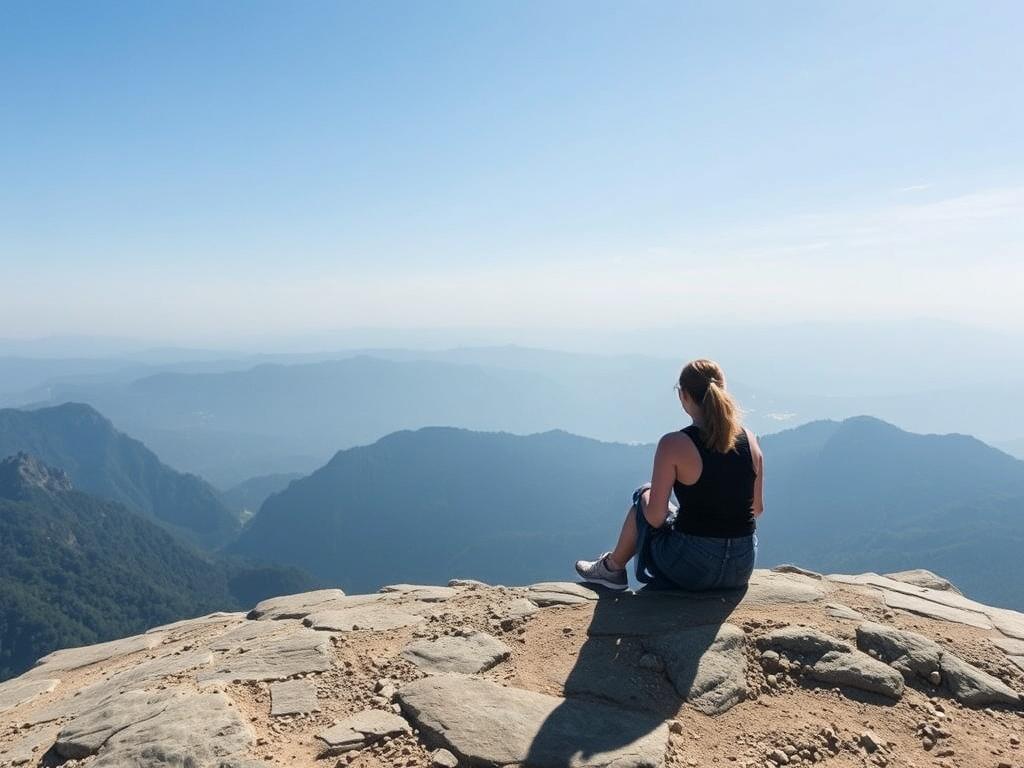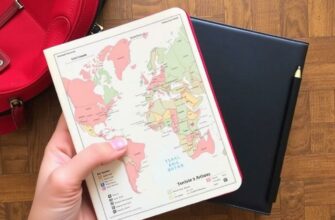The Unique Challenges of Extended Solo Travel
Traveling alone for long periods is an exhilarating adventure many dream about. The freedom to choose your daily routine, dive deep into new cultures, and reflect on personal growth is unmatched. However, while the excitement is undeniable, solo travel — especially extended trips — presents distinct mental health challenges that are often overlooked. When you’re away from a familiar support system and navigating unfamiliar environments, feelings of loneliness, anxiety, and homesickness can creep in. Managing mental health during extended solo travel is essential not just to enjoy the journey but to thrive through it.
One of the hardest parts about solo travel is the lack of consistent social interaction. Humans are inherently social beings, and even the most introverted travelers require moments of connection and familiarity to recharge emotionally. Additionally, being solely responsible for your safety, finances, and well-being can sometimes feel overwhelming. It’s easy to get caught up in the excitement or stress of planning each day that mental health takes a backseat. The good news? There are practical and effective strategies to maintain a balanced mental state throughout your adventure.
Understanding Your Emotional Landscape on the Road
Mental health is not just about feeling happy all the time. It’s about recognizing your emotions, managing stress, and fostering resilience in changing circumstances. During extended solo travel, your emotional landscape may be more volatile than usual, influenced by factors such as culture shock, sleep disruptions, and unpredictable situations. Being mindful of this emotional rollercoaster is the first step to managing it well.
Many solo travelers encounter phases of what’s often called the “travel blues.” This can manifest as unexpected sadness, irritability, or fatigue and usually pops up after the initial excitement wears off. It’s normal and doesn’t mean you’re failing at traveling alone. Accepting these feelings without judgment helps prevent negative spirals and enables you to address them constructively.
Common Emotional Challenges Solo Travelers Face
- Loneliness and Isolation: Missing family, friends, and familiar social contexts.
- Anxiety and Uncertainty: Navigating new languages, customs, and safety concerns.
- Cultural Overload: Feeling overwhelmed by continuous sensory and social stimuli.
- Decision Fatigue: Managing finances, logistics, and daily decisions alone.
- Homesickness: Longing for comfort and routine.
Acknowledging these common challenges can empower you to create actionable strategies tailored to your emotional needs.
Effective Tips for Maintaining Mental Health During Extended Solo Travel
Taking steps to manage your mental health will enhance your travel experience and help you create lasting positive memories. Here are some essential tips:
1. Prioritize Routine and Self-Care
Establishing a daily routine, even a flexible one, improves emotional stability. Simple habits like a morning stretch, journaling, or meditating can ground you. Self-care might sound indulgent, but it’s vital for mental clarity and emotional calm. Make sure you sleep well, eat nourishing meals, and include physical activity. Many travelers find yoga or light workouts beneficial to reduce stress and maintain balance.
2. Stay Connected
While solo travel often implies independence, remember you are never truly alone. Maintaining regular contact with family and friends can be a lifeline. Use technology like video calls, social media, and messaging apps to share your experiences and hear familiar voices. Additionally, seek local social opportunities such as meetups, language exchanges, or cultural tours to meet new people and break isolation.
3. Practice Mindfulness and Gratitude
Mindfulness helps you stay present and reduces anxiety about the future or regrets about the past. Taking time to simply observe your surroundings, breathe deeply, or meditate can ground your mind. Pair mindfulness with daily gratitude practices, like noting three positive things about your day, to cultivate optimism and perspective.
4. Prepare Financially and Logistically
One source of stress is the pressure of managing your travel budget and logistics alone. Planning ahead and setting a clear budget prevents unexpected financial stress. Maintain an emergency fund, carry backup means of payment, and know where your country’s embassy or consulate is located. Organizing travel insurance that covers mental health care is also a wise step when you anticipate long-term solo travel.
5. Learn and Set Personal Boundaries
Boundaries are critical to mental wellness on the road. This means understanding your limits — for example, how much social interaction you can handle or when to say no to an exhausting itinerary. Don’t feel pressure to overextend yourself simply to keep up with others or to avoid loneliness. Respecting your comfort zones prevents burnout and emotional distress.
The Role of Journaling and Reflection in Mental Health
Journaling serves as both a therapeutic activity and a memory-keeping exercise during extended solo travel. When you write about your experiences, feelings, and challenges, you create mental space to process emotions and reduce stress. Reflection allows you to track growth and identify patterns that may require attention.
How to Make the Most of Journaling
| Journaling Technique | Benefits for Mental Health | Tips for Solo Travelers |
|---|---|---|
| Daily Mood Check-In | Increases emotional awareness and tracks changes | Use emojis or simple words; keep it short on busy days |
| Descriptive Travel Log | Encourages mindfulness and appreciation for surroundings | Focus on sensory details and moments that impacted you |
| Gratitude Journal | Builds positive mindset and resilience | Note 3 things daily, big or small |
| Emotional Release Entries | Allows processing of difficult feelings | Write without censoring; safe private space crucial |
Integrating these journaling styles can create a powerful support tool to manage mental health throughout your trip.
Finding Balance Between Exploration and Rest
One of the appealing aspects of traveling solo is the freedom to explore endlessly, but constant activity without downtime can be exhausting. Listening to your body and mind signals is crucial. Don’t hesitate to schedule rest days or simply linger in one place if that’s what you need. Mental health during extended solo travel flourishes when you achieve balance between excitement and restoration.
Self-Monitoring Checklist: Knowing When to Slow Down
- Feeling persistently fatigued or unmotivated
- Increased irritability or emotional sensitivity
- Difficulty sleeping or eating normally
- Physical symptoms like headaches or stomach issues
- Losing interest in activities you usually enjoy
If any of these occur, consider reducing travel pace or reaching out for support.
When and How to Seek Professional Help

No matter how prepared or resilient you feel, mental health issues can occasionally become too heavy to handle alone. Extended solo travel can exacerbate underlying mental health conditions or trigger new ones. Recognizing when to seek professional help is a sign of strength, not weakness.
Before your trip, research resources available at your destinations. International teletherapy or counseling services tailored for travelers can provide convenient support. Many regions have community mental health centers or clinics that welcome visitors. Travel insurance plans that include mental health coverage are highly recommended.
Tips for Accessing Mental Health Services Abroad
| Step | Description | Helpful Tools |
|---|---|---|
| Research Local Options | Look for clinics, hotlines, or expat support groups in your area | Expats forums, Google Maps, local embassy websites |
| Check Teletherapy Providers | Use platforms offering video counseling accessible worldwide | BetterHelp, Talkspace, local telehealth services |
| Understand Insurance Coverage | Confirm your travel insurance includes mental health care | Policy documents, customer service |
| Prepare Emergency Contacts | Have crisis hotline numbers and emergency contacts handy | List on phone, wallet card |
Taking these steps will give you peace of mind and ensure support is available if needed.
Cultivating a Growth Mindset Through Solo Travel Challenges

Rather than seeing mental health struggles as setbacks, reframing difficulties during extended solo travel as opportunities for growth can be transformational. Every challenge—from navigating a language barrier to facing loneliness—builds resilience, self-awareness, and adaptability. Embracing a growth mindset turns adversity into life lessons, making your journey richer and more rewarding.
Ways to Develop a Growth Mindset on the Road
- Reflect on obstacles as temporary and solvable
- Celebrate small wins and progress
- Seek feedback or advice from locals or fellow travelers
- Try new coping techniques and be curious about your reactions
- Write about your growth experiences in your journal
This positive approach supports long-term well-being and personal transformation.
Packing a Mental Wellness Toolkit

Just as you pack physical essentials, bringing along tools that support your mental wellness is key to a successful extended solo trip. This “mental health toolkit” might include digital apps, sensory comforts, creative outlets, and mindfulness aids.
Suggestions for Your Mental Wellness Toolkit
| Item | Purpose | Example/Recommendation |
|---|---|---|
| Mindfulness/Meditation App | Supports stress reduction and emotional regulation | Headspace, Calm, Insight Timer |
| Portable Journal or App | Facilitates reflection and emotional processing | Notebook, Day One app |
| Comfort Object | Provides a sense of security and familiarity | Small photo, sentimental token |
| Music Playlist or Podcast | Elevates mood and connectivity | Favorite songs, motivational podcasts |
| Exercise Gear | Encourages physical activity to boost mental health | Yoga mat, resistance bands |
Covering all angles with thoughtfully chosen items can reduce stress and uplift your mental state during extended solo travel.
Conclusion
Managing mental health during extended solo travel is an ongoing, dynamic process that requires self-awareness, intentional strategies, and a compassionate mindset. By recognizing the unique emotional challenges that come with traveling alone for long periods, and actively incorporating routines like mindfulness, connection, journaling, and rest, you create a stable foundation for well-being. Preparing practical tools, setting boundaries, and knowing when to seek professional support further safeguard your mental wellness. Ultimately, extended solo travel offers a profound opportunity not only to explore the world but also to deepen your understanding of yourself. Embracing both the highs and lows with kindness and curiosity transforms your journey into a powerful path of growth, resilience, and joy.









